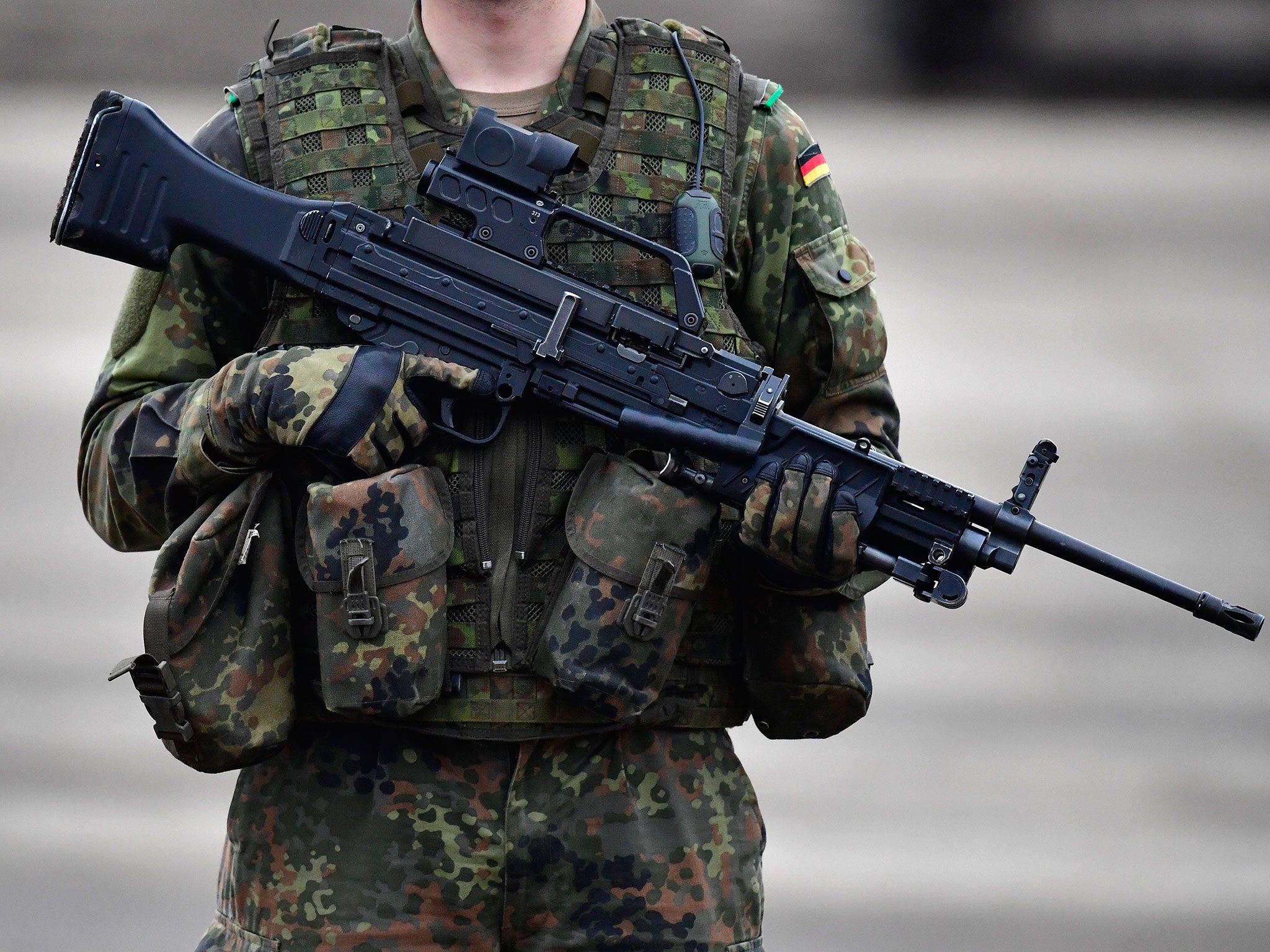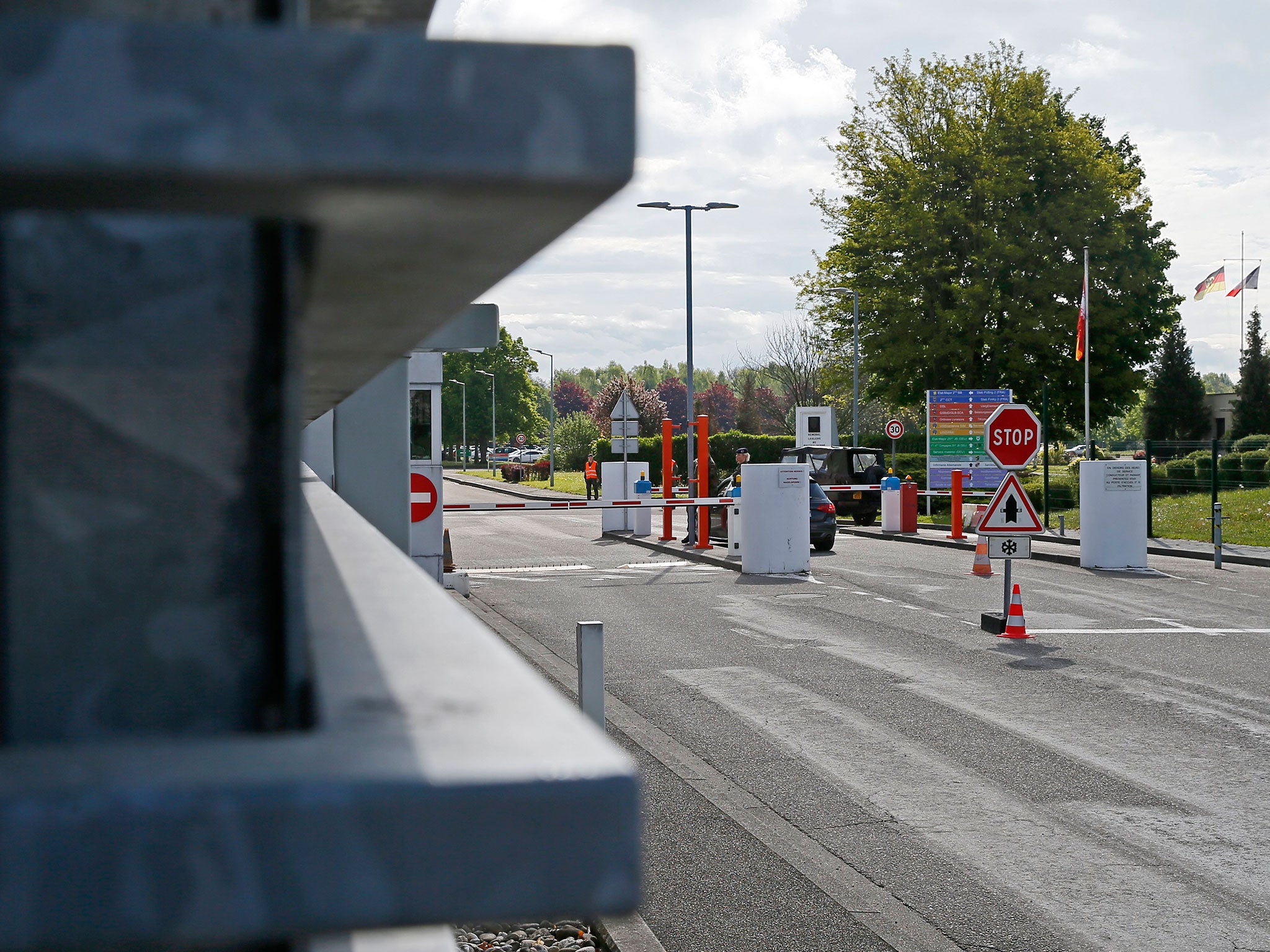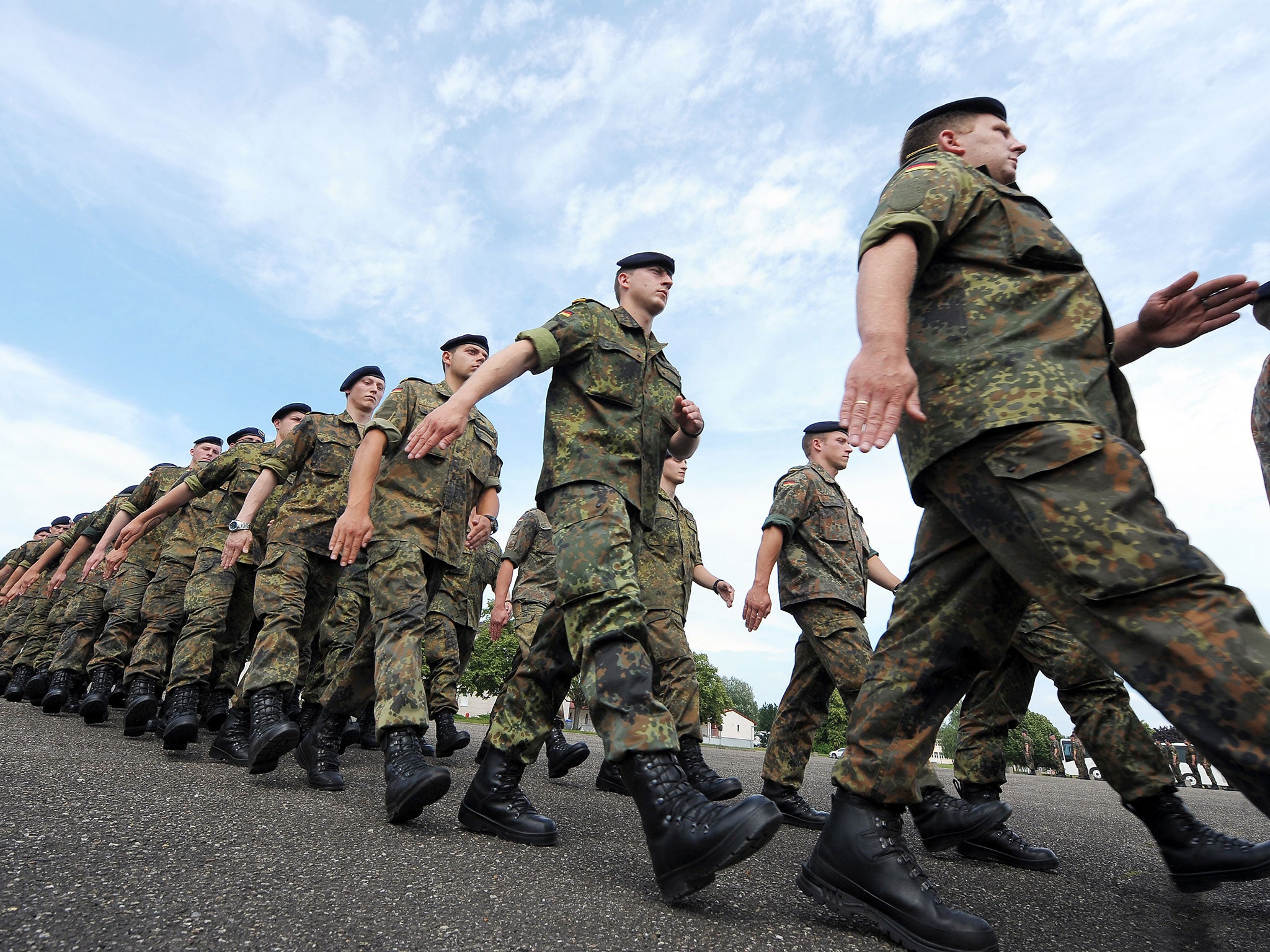Second German soldier arrested over 'false flag' plot to assassinate left-wing politicians in terror attack
Prosecutors say Maximilian T covered for friend as he posed as Syrian refugee

A second soldier has been arrested for allegedly planning a “false flag” terror attack to be blamed on refugees in Germany amid fears of a wider neo-Nazi network within the army.
The plot was exposed with the arrest of a German lieutenant, Franco A, who was found to be posing as a Syrian refugee in order to carry out a shooting attack targeting left-wing politicians.
One of his friends at Illkirch-Graffenstaden barracks in France has now been detained for allegedly covering for the soldier’s absences as he periodically returned to Bavaria to continue the ruse.
Maximilian T, a 27-year-old German national, was also a member of Jägerbataillon 291 and was arrested on Tuesday after being questioned by military intelligence officers.
He had joined his friend on a trip to Vienna in January – supposedly for an officers’ ball – where Franco A stashed an unregistered gun to be used in the attack at the city’s main airport.
Maximilian T was also part of an online messaging group where he, Franco A and other members exchanged far-right posts, photos and audio files, Der Spiegel reported.

He is assumed to be “number three” in the plot, following Franco A and Mathias F, a friend from his hometown who was also arrested in April.
“They were willing, or at least claimed to be, to kill for their cause,” an investigator said.
As well as the loaded 7.65mm pistol stashed in a toilet at Vienna International Airport, around 1,000 rounds of ammunition were found at Mathias F’s home in Offenbach – mostly stolen from the German army.
The federal prosecutor's office said the three suspects were suspected of planning to attack senior politicians and public figures “who are committed to an immigration and refugee policy which has failed in the view of the defendants”.
The names of the former German President, Joachim Gauck, and left-wing justice minister Heiko Maas (SPD) were on a list of potential targets, said spokesperson Frauke Köhler.
She told a press conference Franco A planned to frame Islamist militants for the attack, which would have been linked to his fake identity as a Syrian refugee.
“The three suspects wanted to direct suspicion at asylum seekers living in Germany after the attack,” she added.

“The planned attack was intended to be interpreted by the population as a radical Islamist terrorist attack by a recognised refugee.
“Especially with regard to the ongoing public discussion over immigration and refugee policy, an alleged terrorist attack by a registered asylum seeker would have attracted particular attention and contributed to the sense of threat.”
Numerous asylum seekers have been arrested on terror charges in Germany, including former members of Isis, al-Qaeda and the Taliban.
Franco A had created a fake persona under the name David Benjamin, telling immigration officials he was a Damascus fruit seller from a Christian family with French roots.
No doubts appear to have been raised over the credibility of the 28-year-old’s background, despite him speaking mainly French with a smattering of Arabic from a language course.
The lieutenant registered in Giessen, Hesse, on 30 December 2015 – as Germany was overwhelmed by the arrival of almost a million asylum seekers - then submitted an asylum application at Zirndorf in Bavaria in January last year.
Despite having to return to Germany to collect monthly welfare payments, Franco A continued his army post in France until the day of his arrest because his friend covered for him, prosecutors said.
“Maximilian T is strongly suspected of planning a serious act of violence against the state out of a right-wing extremist conviction,” a spokesperson added.
“The resulting absences were at least partly covered up by Maximilian T, who had excused Franco A to his superiors.”
Officials said he obtained a Second World War era Unique Model 17 pistol for the attack, which he hid in a disabled toilet in Vienna International Airport while passing through in January.
Franco A’s double life was only discovered when he was arrested after returning to retrieve the gun in February.
A fingerprint check revealed his fake identity as a Syrian refugee, but when “David Benjamin” failed to answer a court summons in Austria, a wider investigation was triggered and the plot unravelled.
The soldier had not raised alarm over extremism in the army, despite writing a master’s thesis on ”political change and subversion strategy“ at a French university in 2014 that was found to contain far-right thinking.
An assault rifle case carved with a swastika was found in his barracks room, where the letters HH [Heil Hitler] were inscribed on the wall and a Nazi-era pamphlet depicting a Wehrmacht soldier was discovered.
The unprecedented plot has shocked Germany, prompting investigations within the army and interior ministry over how Franco A was able to lead a double life for more than a year.
The defence minister, Ursula von der Leyen, has come under fire for her handling of the case after attacking “weak leadership” following the discovery of 275 suspected right-wing extremists within Germany’s military.
She has since apologised for her blanket criticism, following scandals including sexual abuse and hazing at another military base.
Angela Merkel defended the minister, who has been widely tipped as her successor as Germany heads of federal elections in September.
“It is right that the defence minister did not trivialise what has happened,” the Chancellor said.
“She calls it by its name [right-wing extremism] and is saying that we have to look at whether something like this is happening more often."
Join our commenting forum
Join thought-provoking conversations, follow other Independent readers and see their replies
Comments
Bookmark popover
Removed from bookmarks